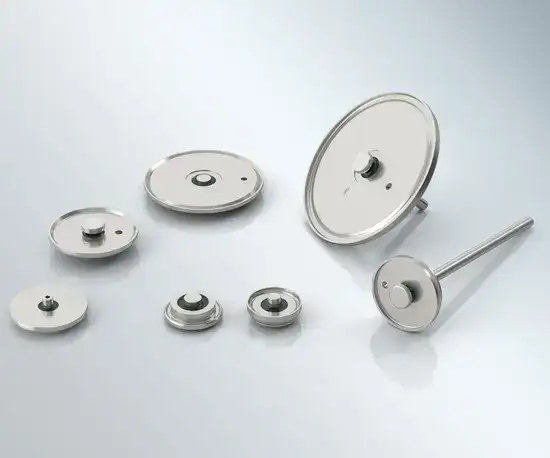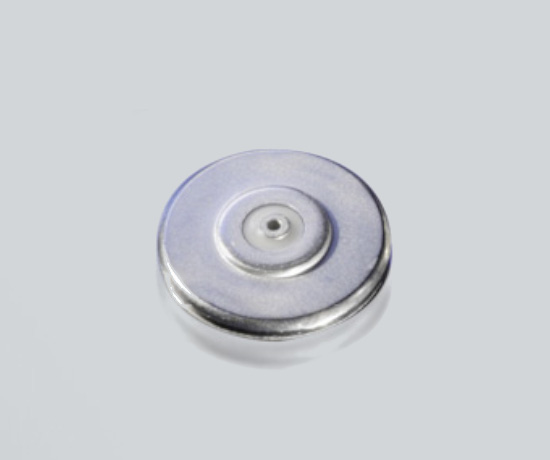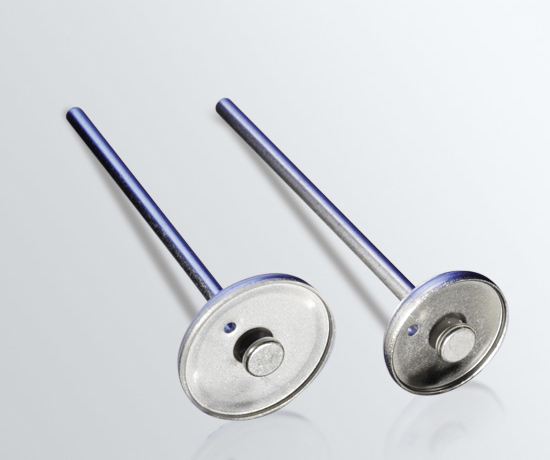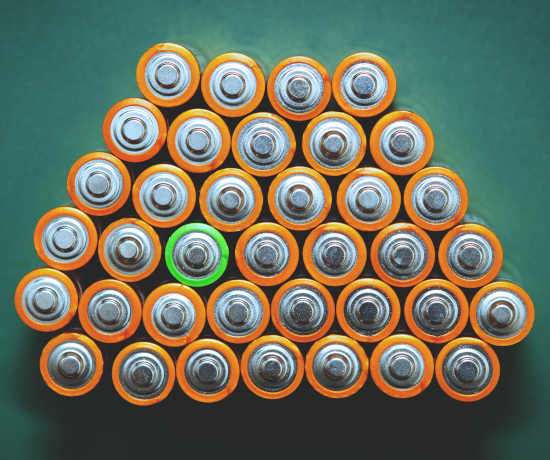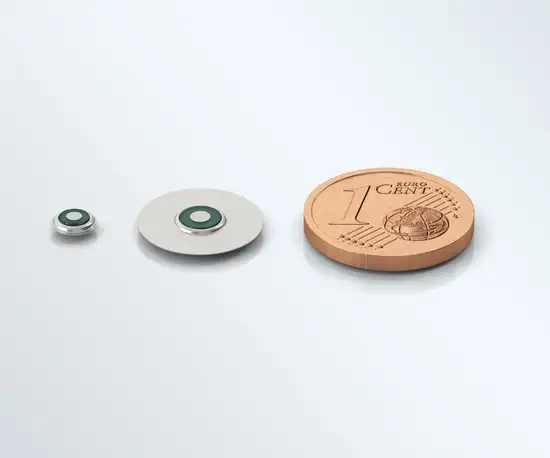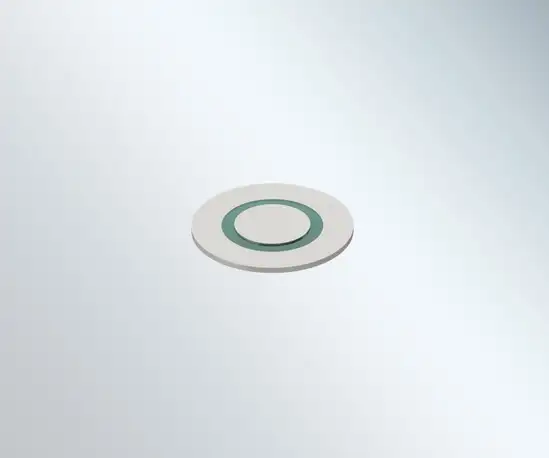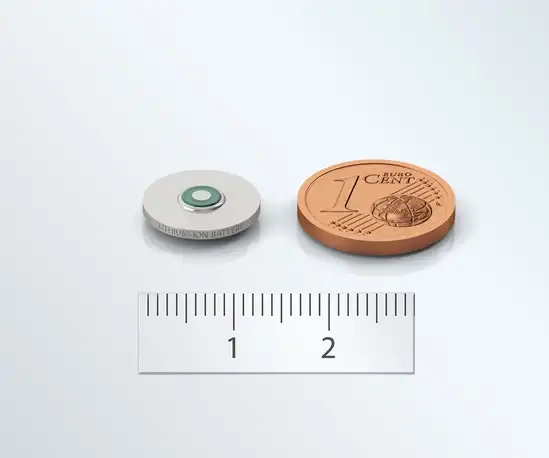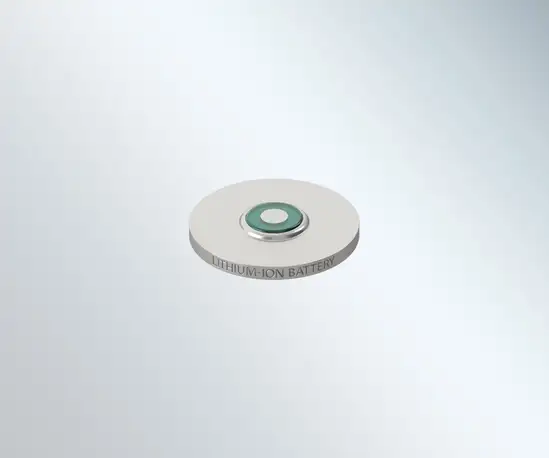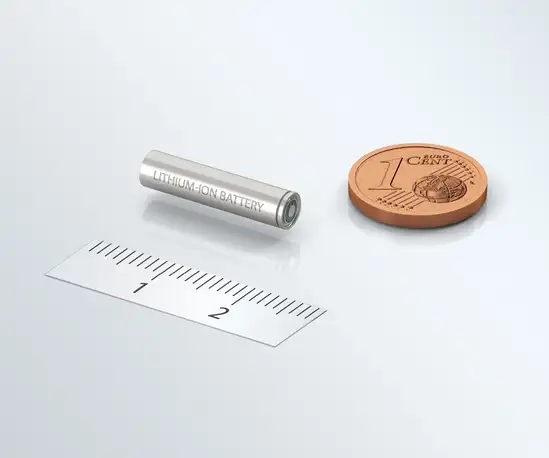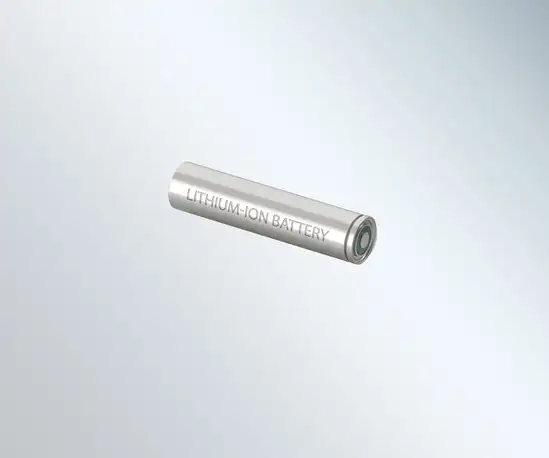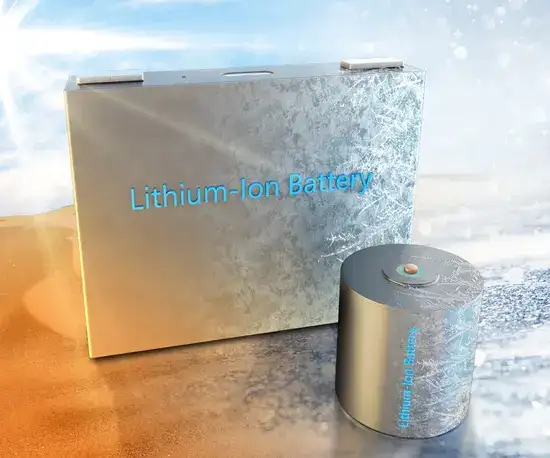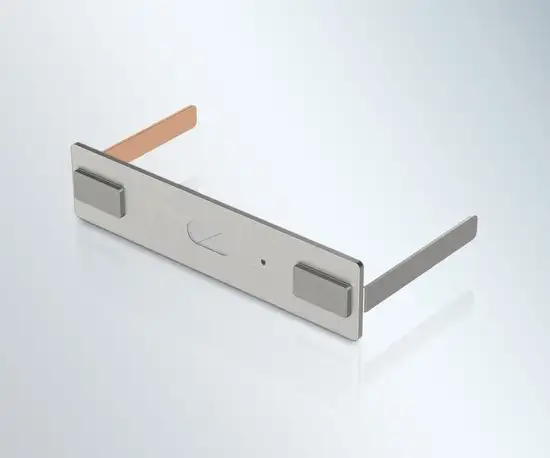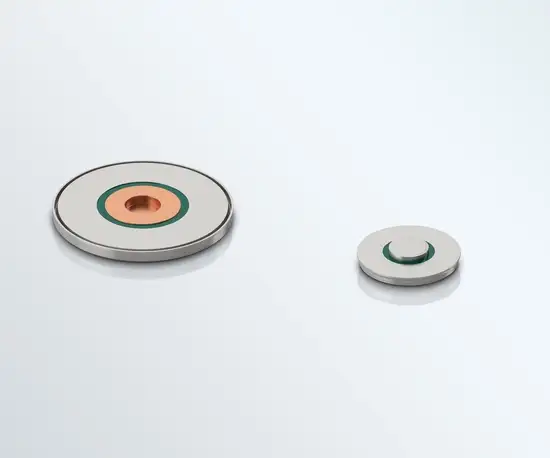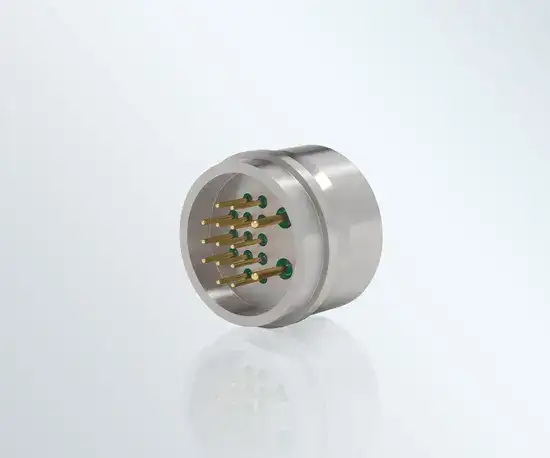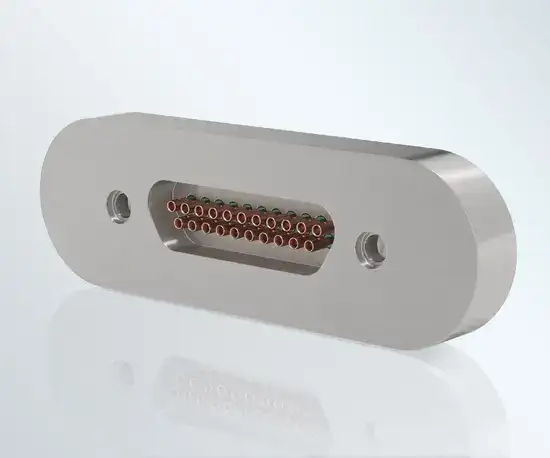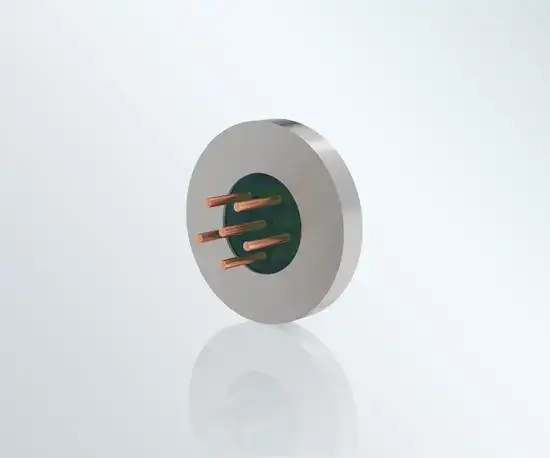Product Variants of Battery Lids and Connectors
Lithium Primary Battery Covers
- Availability of standard sizes from AA, to C and D Cells.
- Customized designs (cylindrical and prismatic).
- High temperature resistance, ranging from -65°C to more than +150°C.
- Proprietary electrolyte-resistant glass specially developed for lithium primary chemistries, including lithium thionyl chloride (Li-SOCL2), Lithium Manganese Dioxide (LiMO2), Lithium Sulfur Dioxide (LiSO2), and more.
- Hermetic sealing reliably prevents humidity intrusion into the cell housing and electrolyte leakage.
SCHOTT battery covers are trusted by the battery industry worldwide with a proven lifetime of up to 25 years or more.
SCHOTT MiniCaps®
- Extremely flat lid design – thinner & mechanically more robust than today’s standard
- Creates space for more electrolyte
- Lid and pins made of stainless steel
- High temperature resistance, from -40° C to over 125° C
- Electrolyte-resistant glass-to-metal sealing
- Customized lid diameters
- For coin cells and pin-type microbatteries
YOUR ADVANTAGES
With their extremely flat design, SCHOTT MiniCaps® create extra space for more electrolyte in the cells compared to conventional polymer-sealed lids. This allows battery cell manufacturers to design tiny and robust cells with extended battery runtimes.
Lithium-Ion Battery Lids
- Simplified, rugged lid design.
- High-temperature resistance, ranging from -60°C to more than +150°C, depending on design.
- Proprietary, electrolyte-resistant glass-sealing, especially developed for a wide range of lithium ion battery chemistries.
- Non-aging, fully hermetic design prevents humidity intrusion into the cell housing.
- Lifetime of up to 25 years.
Battery Connectors
-
Made of metal and glass - non-aging, inorganic materials with proven resistance to standard cooling liquids and electrolytes (e.g. NMC, LFP)
-
Leak-tight over the lifetime of the battery module without corrosion, even for small pin pitches
-
Rugged design with high pressure resistance, based on compression sealing technology
-
High temperature resistance from -40°C to over +150°C
YOUR ADVANTAGES
Thanks to proprietary glass-to-aluminum (SCHOTT GTAS®) sealing technology and proven glass-to-metal seals (GTMS), SCHOTT® battery connectors not only provide a leak-tight connection, but also increase safety and reduce the risks of a thermal runaway. Moreover, these battery connectors are suitable for ultrafast charging.
Ultracapacitor Lids
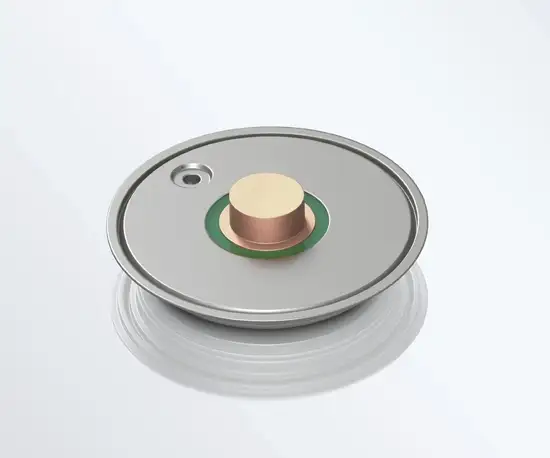
- High-temperature resistance, ranging from -40°C to more than +125°C.
- Electrolyte-resistant, non-aging glass seals that eliminate electrolyte dry-out.
- Up to 20% reduction in electrolyte volume.
- Reduction of capacity losses over time by up to 60%.
- Improvement of internal resistance by over 50%.
Ultracapacitors are now applied for larger-scale usage such as electric vehicles that rely on these components as they have far greater charge storage areas than standard capacitors.
High-power and renewable-energy applications also utilize ultracapacitors. These applications have pushed the demand for powerful, lightweight components that require little or no maintenance, are able to operate in harsh environments across a wide range of operating temperatures, and have high-power density and high reliability. SCHOTTs hermetic covers enable new ultracapacitor designs that push the boundaries of innovation even further.

Carrissa T Ng
Sales Manager, Battery Solutions
